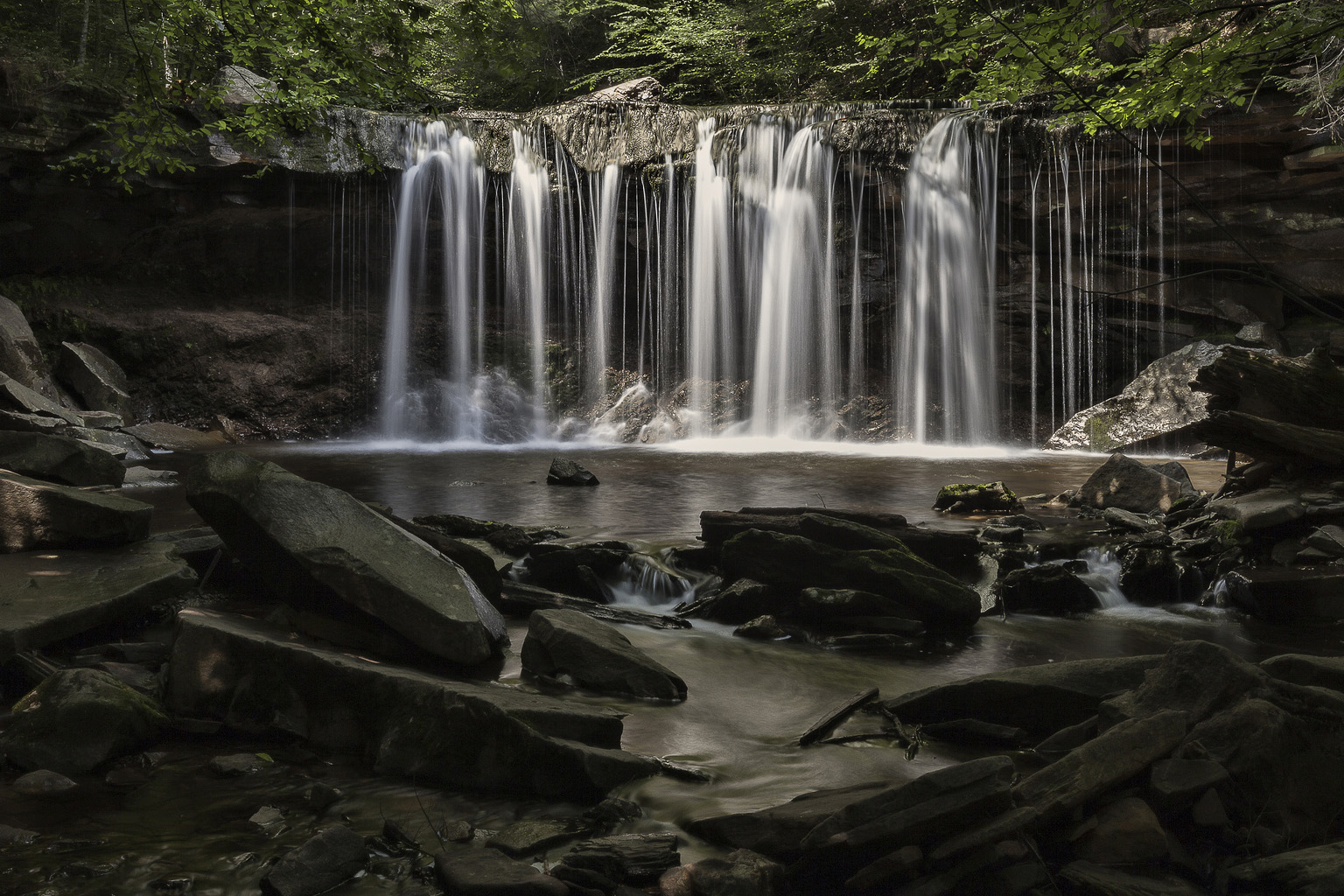The coalition of people across the world who are urging world leaders to do something about climate change is broader than ever. Earlier this year, Pope Francis issued his landmark statement on climate change. And Buddhist leaders have also signed a letter that urged nations at the UN climate summit in Paris to come to an agreement limiting fossil fuel emissions. Recently, Kara Holsopple caught up with Pittsburgh’s George Hoguet to talk more about why Buddhists are taking a stand on the climate change issue. He’s an ordained lay person in the Buddhist Order of Interbeing and studies with Zen Master Thich Nhat Hanh. Hoguet also took part in last year’s People’s Climate March in New York and is a founder of the Earth Holder Sangha, which works on climate change issues from a Buddhist perspective.
Allegheny Front: What are some of the tenets of Buddhism that point towards the environment or caring for the environment?
George Hoguet: You know, there are a lot of different Buddhist traditions and several different schools of Buddhism. But they all kind of have a core understanding. And probably the biggest understanding is that there’s no duality. We are not separate from one another, we are not separate selves. There’s more “non-George” in George—you know, there’s my parents in me, there’s the sun, there’s the earth, there’s the breath of animals. And that’s pretty consistent in Buddhism. The protection of the environment—the Buddha spoke to that himself, and a Bodhisattva is kind of a Buddhist saint. And there’s one called The Earth Holder to protect the animals—a lot like St. Francis of Assisi.
AF: Earlier this year, the Pope’s encyclical, or teaching on the environment, made a big splash and sets up acting on climate change as a moral issue. Buddhist leaders recently released a letter to world leaders in advance of the Paris climate talks, urging them to stop relying on fossil fuels. That was a big deal, right?
GH: That was a major deal. Right after the Pope issues that encyclical on June 18, within that week, the Dalai Lama endorsed it. I think the Buddhist leaders recognized that this is coming from human activity, and our teacher Thich Nhat Hanh got engaged with this back in the ‘70s. In 1970, there was a major scientific conference, and they were looking at population growth. We were at 3.5 billion; now we’re almost eight. But they also saw fossil fuels coming on. So they speak to that. The Buddhist leaders speak a lot more to the spiritual pollution that we have—the extravagance that we have and not really understanding how our decisions affect other people.
LISTEN: “A Buddhist Perspective on Climate Change”
AF: Are you talking about over-consumption?
GH: Certainly Buddhist practices call for a simple lifestyle. There’s a call to get as close to vegan as you can because of the impacts of emissions from livestock and dairy. I don’t want to say that they want to target any one given industry. They’re really asking us to look at where it’s all coming from, and it’s coming from us not paying attention—not being connected to Mother Earth.
AF: What are Buddhist leaders asking their followers to do about climate change?
GH: Buddha means “The Awakened One,” so they’re asking us to really wake up and to help wake other people up. Again, my teacher Thich Nhat Hanh is credited with the term “engaged Buddhism.” And that came from the fact that he was from Vietnam, and bombs were dropping in the neighborhoods and the monks could not just sit in the monastery while communities were being destroyed. They went out and got engaged. And he feels the same way towards this crisis and this issue. So [that means] encouraging other people without pointing blame, without making “the Other” other, because then the conversation can’t go.
AF: Do you think science and politics need religion to get the support they need for action on climate change?
GH: I think where we need the moral aspect is—where the religions will speak to—is this idea of sharing and not considering others “Other;” and recognizing that in order for the technology to move forward, that we will need to be able to be in relationship with one another.

George Hoguet is an ordained lay person in the Buddhist Order of Interbeing. Photo courtesy George Hoguet
AF: And how does your practice of Buddhism inform your environmental work? Or, maybe the opposite, how does your environmental work inform your faith?
GH: When I look at what just happened in Paris, and what took us so long to get there, it seems to me that we are finally speaking to one another. I was a lot more caustic about things we needed to do, and who are the bad guys, and all of that, for a while. And I found that just puts people off. It doesn’t really help bring people together. The solutions are going to be found by everybody coming together, so my teachings and my practice, which is about equanimity, really inform that a lot. I think my environmentalism is very consistent with the teaching of Buddhism and certainly our teacher, who’s written many articles about Mother Earth. So I think they work hand-in-hand. But it’s kind of calmed me down a little bit and helped me listen to the other side.
###
George Hoguet is an ordained lay person in the Buddhist Order of Interbeing and studies with Zen Master Thich Nhat Hanh. Hoguet is also a founder of the Earth Holder Sangha, which works on climate change issues from a Buddhist perspective.



